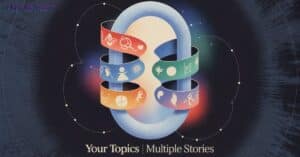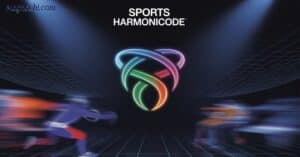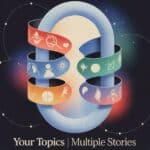If you’ve ever sat staring at the NYT Connections Puzzle grid, wondering how four simple categories could feel harder than calculus, you’re not alone. The Mashable Connections Hint Today has become a lifeline for thousands of puzzle lovers who want help without completely spoiling the fun.
This guide dives deep into the puzzle’s structure, how hints work, proven strategies, advanced tactics, and common pitfalls. By the end, you’ll know how to tackle today’s puzzle faster while still enjoying the thrill of solving it yourself.
What Is Mashable’s Connections Hint?
Every morning, Mashable (publisher, guide provider) drops a subtle lifeline: the Connections Hint Mashable post. Instead of giving away the entire solution, it offers graduated nudges that help you notice hidden links.
Unlike full-blown spoilers, these hints are layered. They start vague (“Think musical instruments”) and get progressively specific until the final answer if you really need it. This way, players can choose their level of support.
“Hints are about sharpening your focus, not handing you the solution.”
For many, the Mashable Connections Hint Today strikes the perfect balance between keeping the challenge alive and avoiding the frustration of staring at the grid for 20 minutes without progress.
Understanding the NYT Connections Puzzle
Before you can beat the puzzle, you need to understand its puzzle format and rules.
Puzzle Format
- A 16 words grid.
- Your goal: form 4 groups of 4 words.
- Each group shares a common theme (like “Birds” or “Tech Companies”).
Color-Coded Difficulty
Each group has a difficulty ranking:
| Color | Difficulty | Example |
|---|---|---|
| Yellow | Easy | Days of the Week |
| Green | Moderate | Dog Breeds |
| Blue | Hard | Broadway Musicals |
| Purple | Most Difficult | Slang or Abstract Categories |
Game Mechanics
- Lives → 4 mistakes allowed.
- Penalties → wrong guesses reduce lives.
- Game Over → after too many wrong moves.
This combination of simplicity and mental trickery is what makes the NYT Connections Puzzle so addictive.
Why Connections Is So Challenging
What looks like a vocabulary warm-up often turns into a brain teaser. Here’s why:
- Overlapping categories: A word like Apple could mean a fruit, a tech company, or even a color.
- Abstract vs. literal themes: Sometimes groups are straightforward (Birds → Eagle, Crow, Dove, Swan). Other times they’re abstract (Things That Rise → Dough, Balloon, Sun, Tide).
- Linguistic tricks: Homophones, homonyms, and synonyms frequently appear, tripping up even experienced players.
- Mental fatigue: With only 4 lives, one wrong streak can end the game before you crack the grid.
This is why players flock to Connections Hint Mashable every morning—it saves them from the frustration spiral.
How Mashable’s Hints Actually Help
The Mashable Connections Hint Today uses a layered approach:
- Stage 1: Broad category clues (e.g., “Think of types of trees”).
- Stage 2: Narrower hints (e.g., “These are common in Christmas decorations”).
- Stage 3: Direct spoilers if you truly can’t move forward.
Why this matters:
- Preserves challenge: You still solve most of the grid yourself.
- Prevents burnout: Keeps the puzzle fun, not frustrating.
- Teaches patterns: Over time, hints train your brain to spot categories without help.
This balance is why the Mashable Connections Hint Today has grown into a daily ritual for puzzle fans across Reddit r/ConnectionsNYT, Twitter (X), and Mashable’s own comment section.
Proven Step-by-Step Strategy to Solve Faster
Even without hints, you can solve smarter by following a structured plan.
Step 1: Scan the Grid
Glance through all 16 words. Look for obvious common themes.
Step 2: Tackle the Easy Ones
Yellow categories (like months or colors) are often straightforward. Lock these in first.
Step 3: Test Groupings Logically
Drag and drop words you suspect belong together. Use the elimination method to check.
Step 4: Use Mashable Hints Strategically
If you’re stuck, peek at the Connections Hint Mashable. Stop after the first clue unless you truly need more.
Step 5: Leave the Hardest for Last
Save the purple group for the end. These often involve slang, idioms, or abstract links.
Advanced Tactics for Experienced Players
Once you’ve mastered the basics, level up with these expert strategies:
- Recognize linguistic tricks: Watch for homophones (pair vs pear), homonyms (bark as tree vs dog sound), and sneaky synonyms.
- Spot abstract vs literal themes: Don’t assume every group is obvious. “Cold Things” could be Ice, Snow, Fridge, Igloo.
- Elimination process: If one group is clear, removing those words makes the rest easier.
- Flexible thinking: Ask yourself, “Could this word belong in two categories? Which fits better?”
Case Study: Breaking Down a Past Puzzle
Imagine a past grid contained:
- Apple, Microsoft, Google, Amazon
- Crow, Dove, Swan, Eagle
- Tide, Dough, Balloon, Sun
- Red, Blue, Green, Yellow
Here’s how you’d solve:
- Spot the tech companies (easy → yellow).
- Next, the birds (green).
- Then, identify things that rise (blue).
- Finally, colors (purple, since they overlap with categories like companies).
This mirrors the logic you’ll need daily.
Common Mistakes to Avoid
Even pros fall into traps. Watch out for these:
- Tunnel vision: Sticking to one theory and forcing words into it.
- Overvaluing exact matches: Assuming groups are only literal, when abstract categories exist.
- Misreading difficulty colors: Sometimes a purple group feels easy depending on your knowledge.
- Ignoring subtle themes: Pop culture, slang, and idioms appear often. A group like Kardashian, West, Swift, Drake might be Celebrities in Headlines.
Benefits Beyond Just Winning
The puzzle isn’t just fun it’s good for you.
Cognitive Benefits
- Builds pattern recognition.
- Improves mental agility and flexible thinking.
- Reduces frustration tolerance through small daily challenges.
Social Benefits
- Compare streaks on Twitter/X.
- Discuss tricky grids on Reddit r/ConnectionsNYT.
- Share strategies in Mashable’s community section.
Habit-Building
Daily puzzles keep your brain engaged, much like Wordle. Many players open the Mashable Connections Hint Today alongside their morning coffee ritual.
Conclusion
The NYT Connections Puzzle is deceptively simple yet endlessly challenging. With only 16 words to sort into 4 groups, it can test both your vocabulary and your patience.
That’s why the Mashable Connections Hint Today is so valuable it helps you sharpen your skills while keeping the fun intact.
By understanding the puzzle format, mastering color-coded difficulty, using a step-by-step strategy, and avoiding common pitfalls, you’ll solve faster and with fewer mistakes.
Remember: use hints as tools, not crutches. Over time, you’ll recognize patterns, master tricky categories, and enjoy the game even more.
So next time you open the grid, take a breath, scan carefully, and let the Mashable Connections Hint Today be your guide.
FAQs
What makes the Mashable Connections Hint Today different from full puzzle spoilers?
The Mashable Connections Hint Today stands out because it provides layered clues instead of handing you the answers outright. This way, you can get gentle nudges that sharpen your problem-solving skills without ruining the satisfaction of solving the NYT Connections Puzzle yourself.
How can the Mashable Connections Hint Today help me solve faster?
By using the Mashable Connections Hint Today, you can cut down wasted time spent on dead ends. The hints guide you toward identifying categories like colors, slang, or abstract themes while still letting you use your own logic and strategy to finish the grid.
Is the Mashable Connections Hint Today useful for both beginners and experienced players?
Yes. The Mashable Connections Hint Today helps beginners build confidence and teaches them puzzle mechanics, while advanced players use it to refine strategies, avoid common pitfalls, and boost streaks in the NYT Connections Puzzle.
Read more knowledgeable blogs on Magnochi









